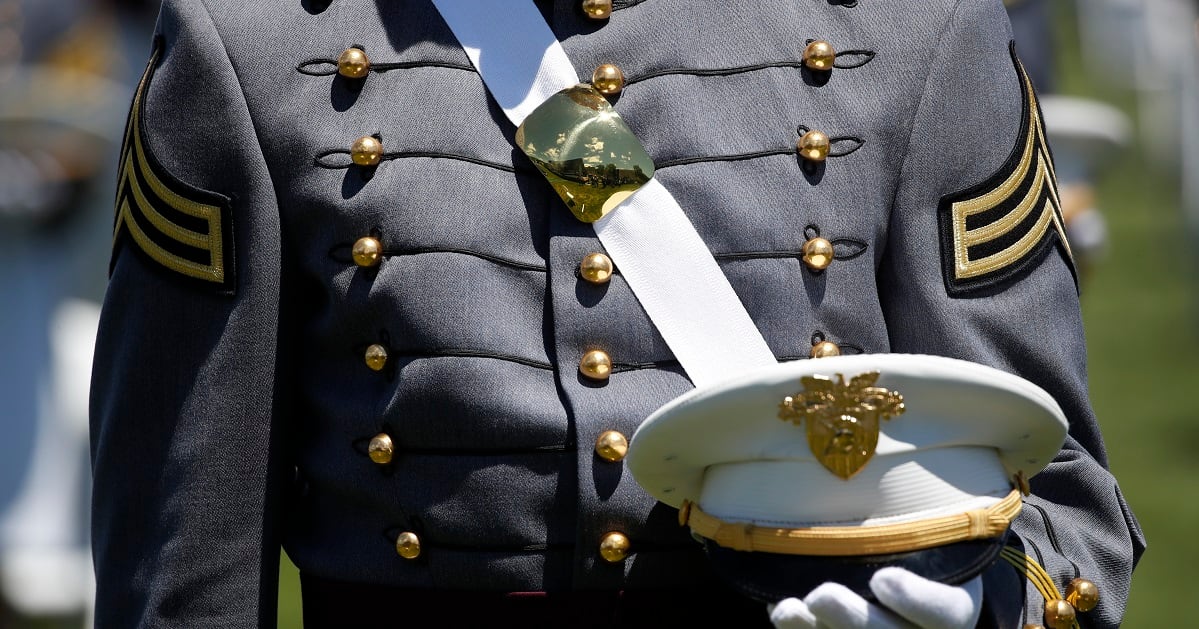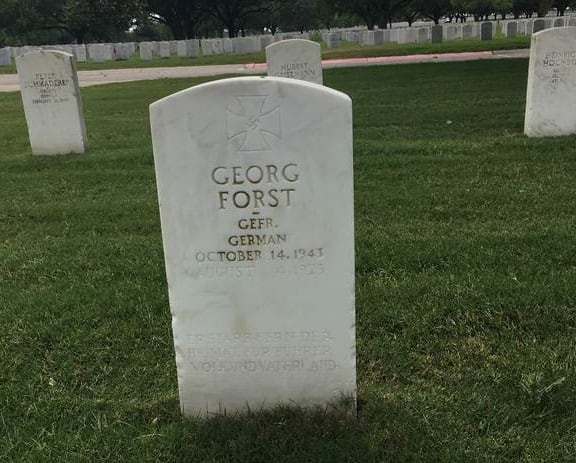President Donald Trump this week threatened a decade of jail time for protesters defacing and toppling statues on federal lands, citing a little known law designed to punish vandalism at American veteran cemeteries.
On Tuesday morning, Trump tweeted that he had authorized federal officials to “arrest anyone who vandalizes or destroys any monument, statue or other such federal property in the U.S. with up to 10 years in prison, per the Veterans’ Memorial Preservation Act, or such other laws that may be pertinent.”
But no presidential authorization is necessary.
RELATED

The Veterans’ Memorial Preservation Act allows for fines and a prison term of up to 10 years for “attempts to injure or destroy, any structure, plaque, statue, or other monument on public property commemorating the service of any person or persons in the armed forces of the United States.”
The memorial preservation act is already existing regulation, and does not need any special authorization to be enforced. Other federal laws also prohibit trespassing and vandalism on federal lands, although they do not specifically focus on memorials and grave sites. Protesters in recent weeks have also been charged with local crimes related to attacks on the statues, including disobeying police orders and unlawful assembly.
Trump’s tweet comes amid nationwide protests of racial inequality that have led to the destruction of dozens of statues — mostly depicting Confederate leaders or historic U.S. figures with ties to past racist policies — on state and federal grounds in recent weeks.
Trump said the law will be used for past and future attacks on the statues, and that “there will be no exceptions!”
The Veterans’ Memorial Preservation Act was passed in 2003 in response to a series of vandalism incidents at veterans cemeteries. The issue had prompted a broader conversation about how to protect such sites, since existing law contained only loosely-connected provisions for grave desecration and destruction of federal property.
Debate over the measure at the time did not discuss the issue of memorials to Confederate leaders. It passed Congress without any significant opposition, and was signed into law by then President George W. Bush.
At the time, bill sponsor Sen. Ben Nighthorse Campbell, D-Colo., told local media that he was worried the proposal would face some resistance because of the “unprecedented penalties” it contained.
RELATED

Instead, lawmakers in their legislative statements said the changes were needed because " attacks against federal cemeteries and veterans memorials uniquely affront the memory of those who sacrificed for our freedom and undermine our collective commitment to honor their service.”
Department of Justice officials did not offer an immediate response to Trump’s statement.
Members of Congress have been divided over the issue of protesters damaging statues. Democratic leaders have pushed for portraits and statues of Confederate leaders within the Capitol to be removed, while a number of prominent Republicans have defended those memorials and questioned the usefulness of destroying historic artifacts.
White House officials said that the president plans to sign an executive order in coming days to provide additional protections for statues on federal lands.
Leo covers Congress, Veterans Affairs and the White House for Military Times. He has covered Washington, D.C. since 2004, focusing on military personnel and veterans policies. His work has earned numerous honors, including a 2009 Polk award, a 2010 National Headliner Award, the IAVA Leadership in Journalism award and the VFW News Media award.




